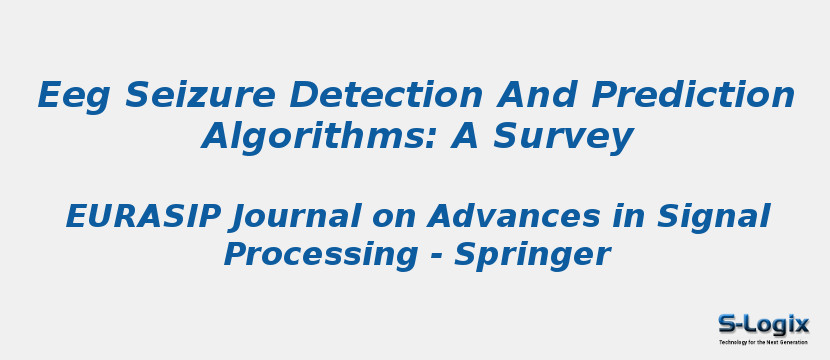Research Area: Machine Learning
Epilepsy patients experience challenges in daily life due to precautions they have to take in order to cope with this condition. When a seizure occurs, it might cause injuries or endanger the life of the patients or others, especially when they are using heavy machinery, e.g., deriving cars. Studies of epilepsy often rely on electroencephalogram (EEG) signals in order to analyze the behavior of the brain during seizures. Locating the seizure period in EEG recordings manually is difficult and time consuming; one often needs to skim through tens or even hundreds of hours of EEG recordings. Therefore, automatic detection of such an activity is of great importance. Another potential usage of EEG signal analysis is in the prediction of epileptic activities before they occur, as this will enable the patients (and caregivers) to take appropriate precautions. In this paper, we first present an overview of seizure detection and prediction problem and provide insights on the challenges in this area. Second, we cover some of the state-of-the-art seizure detection and prediction algorithms and provide comparison between these algorithms. Finally, we conclude with future research directions and open problems in this topic.
Keywords:
Author(s) Name: Turkey N Alotaiby, Saleh A Alshebeili, Tariq Alshawi, Ishtiaq Ahmad & Fathi E Abd El-Samie
Journal name: EURASIP Journal on Advances in Signal Processing
Conferrence name:
Publisher name: Springer
DOI: 10.1186/1687-6180-2014-183
Volume Information: volume 2014, Article number: 183 (2014)
